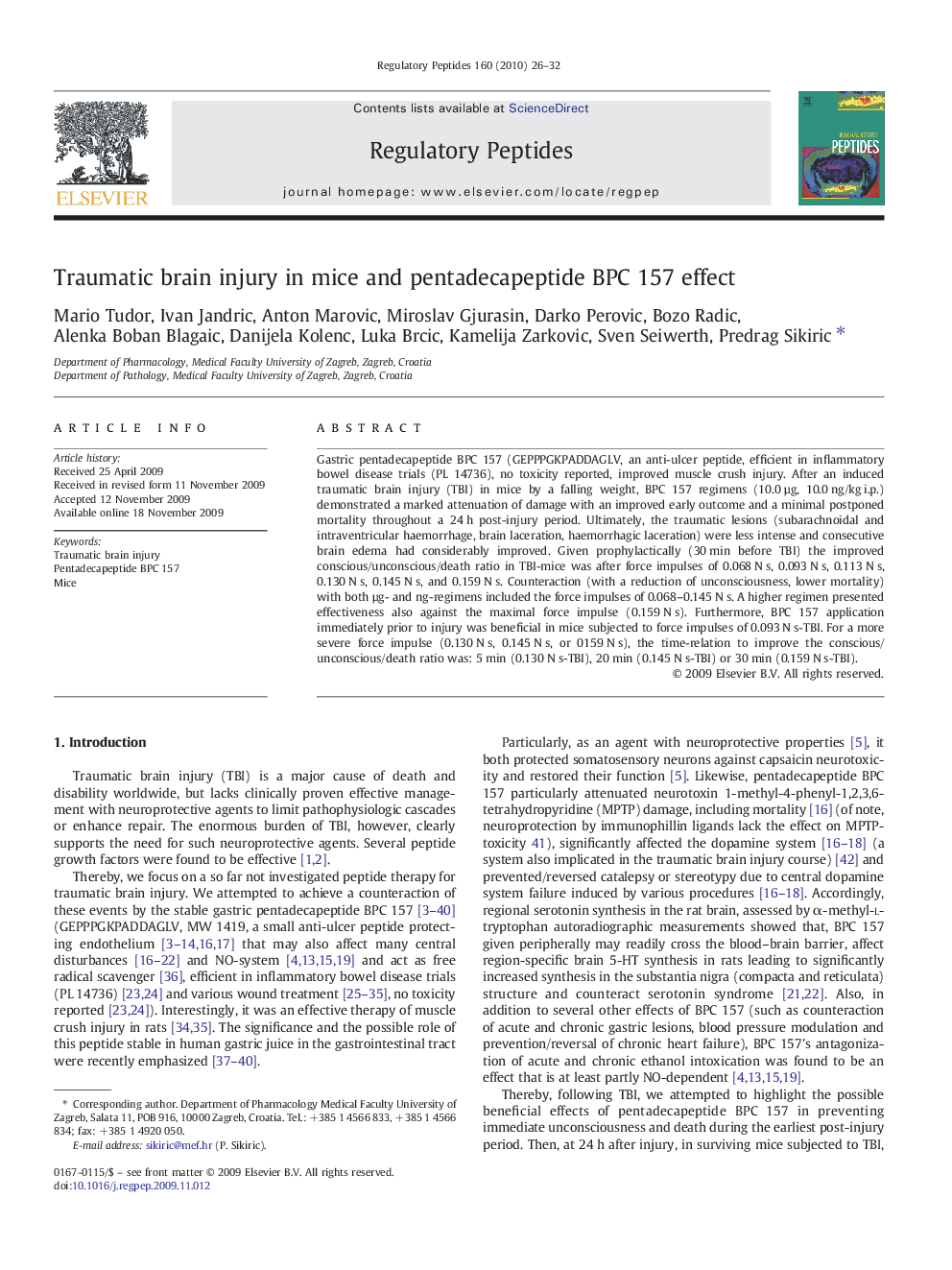| Article ID | Journal | Published Year | Pages | File Type |
|---|---|---|---|---|
| 2022873 | Regulatory Peptides | 2010 | 7 Pages |
Gastric pentadecapeptide BPC 157 (GEPPPGKPADDAGLV, an anti-ulcer peptide, efficient in inflammatory bowel disease trials (PL 14736), no toxicity reported, improved muscle crush injury. After an induced traumatic brain injury (TBI) in mice by a falling weight, BPC 157 regimens (10.0 µg, 10.0 ng/kg i.p.) demonstrated a marked attenuation of damage with an improved early outcome and a minimal postponed mortality throughout a 24 h post-injury period. Ultimately, the traumatic lesions (subarachnoidal and intraventricular haemorrhage, brain laceration, haemorrhagic laceration) were less intense and consecutive brain edema had considerably improved. Given prophylactically (30 min before TBI) the improved conscious/unconscious/death ratio in TBI-mice was after force impulses of 0.068 N s, 0.093 N s, 0.113 N s, 0.130 N s, 0.145 N s, and 0.159 N s. Counteraction (with a reduction of unconsciousness, lower mortality) with both µg- and ng-regimens included the force impulses of 0.068–0.145 N s. A higher regimen presented effectiveness also against the maximal force impulse (0.159 N s). Furthermore, BPC 157 application immediately prior to injury was beneficial in mice subjected to force impulses of 0.093 N s-TBI. For a more severe force impulse (0.130 N s, 0.145 N s, or 0159 N s), the time-relation to improve the conscious/unconscious/death ratio was: 5 min (0.130 N s-TBI), 20 min (0.145 N s-TBI) or 30 min (0.159 N s-TBI).
